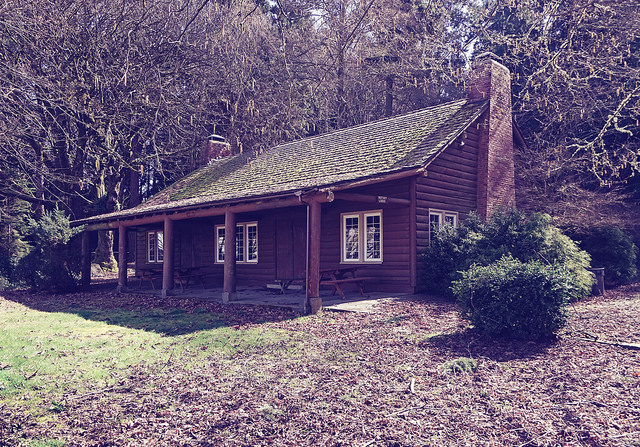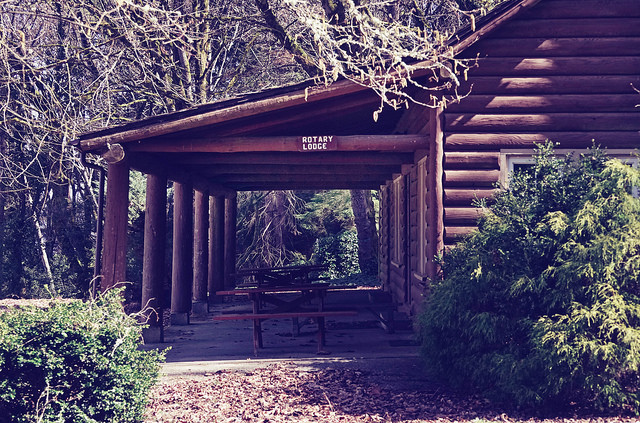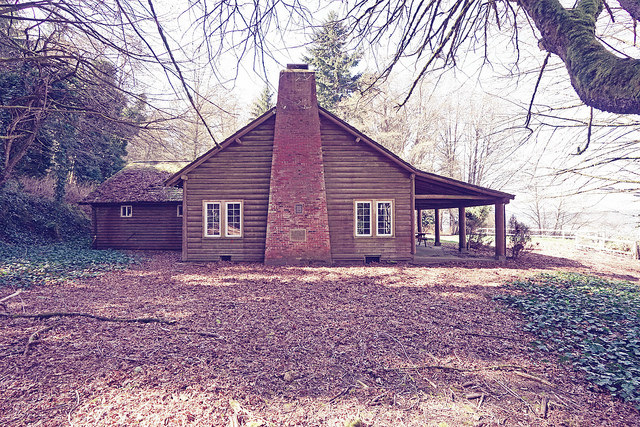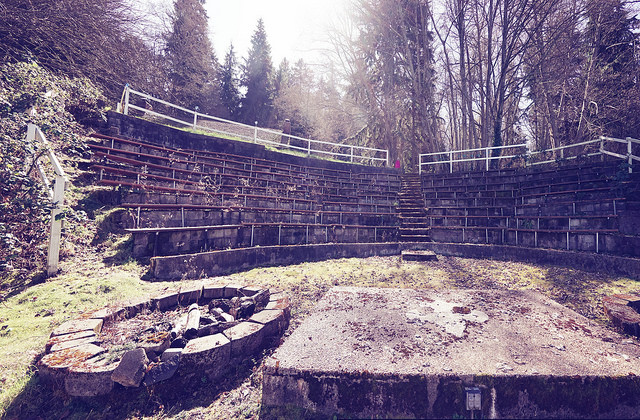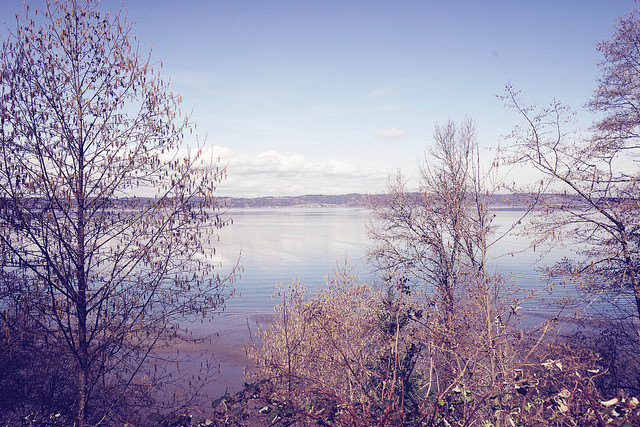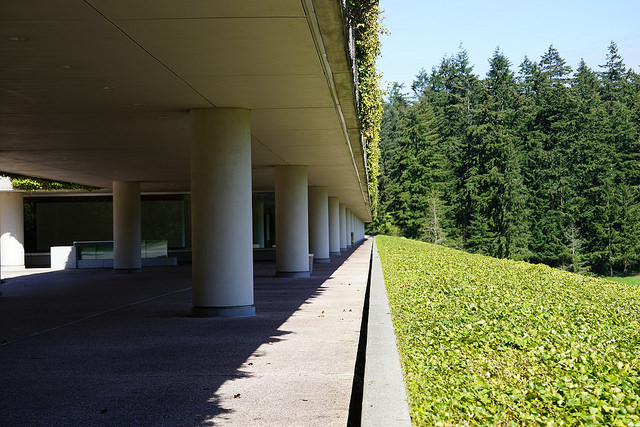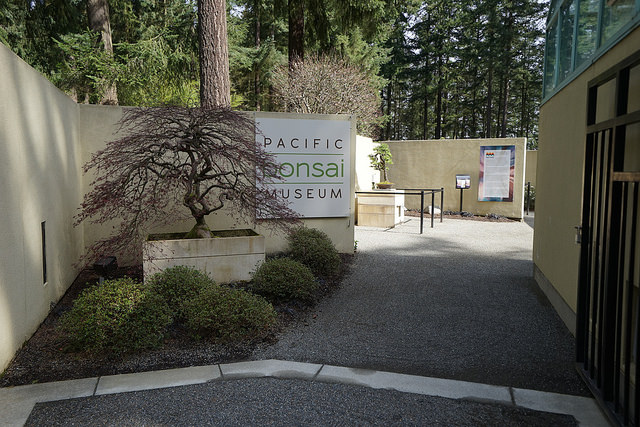The design of the Weyerhaeuser Corporate Campus was a joint effort between architect Charles Bassett of Skidmore, Owings & Merrill, landscape architect Peter Walker, a founding partner of Sasaki Walker & Associates; and George Weyerhaeuser. The collaboration resulted in the design of the stunning 430-acre campus clearly visible from Interstate 5 and Highway 18 in Federal Way. According to Bassett, the campus is designed such that “the landscaping and the building simply cannot be separated…they are each a creature of the other.” The interior design of the headquarters also reflected this sentiment by popularizing the open-office plan, free of any partitions, allowing the exterior landscape to be enjoyed from almost any location inside the building.
The campus was purchased in 2016 by a developer who is moving forward with plans to build warehouses on the surrounding acreage. Local residents are concerned that the massing and scale of proposed new construction will overwhelm the site, adversely impacting the balance of the built and natural landscapes that lend such significance to the site. Advocates are also concerned for the future of the globally important Rhododendron Species Botanical Garden and the internationally-known Pacific Bonsai Museum, two distinct and significant cultural resources also on the property.
With such an expansive campus, a certain level of development is inevitable; even the original concepts for the campus indicated areas for additional development, but at a much smaller scale. New buildings must be sensitive to the original design philosophy of the campus, which emphasized integration with the landscape and environmental sensitivity.
The developer is moving forward with plans to build five warehouses totaling 1.5 million square feet on forested portions of the campus. In response to the proposals, the organization Save Weyerhaeuser Campus (SWC) was founded, fighting for responsible development that is sensitive to the historical and environmental features of the campus. SWC has been pivotal in rallying the community in support of the campus and creating a network of partnerships, including state legislators, King County, Forterra, The Cultural Landscape Foundation, Rainier Autobon, SoCoCuulture, DocomomoWEWA, and the Washington Trust, to name a few.
The dedicated volunteers of SWC have been exemplary in their advocacy efforts in initiating meetings with stakeholders, engaging in the public process, holding their own events, and even legal appeals. It is often difficult to sustain long-term preservation advocacy efforts, and the Washington Trust is proud to be a partner of SWC and committed to doing all we can to preserve the essential elements of this campus.
Letter-writing campaign
Read letters in support of preserving this incredible campus from experts across the country at The Cultural Landscape Foundation’s website.
News coverage
A Fight to Save a Corporate Campus Intertwined With Nature
The New York Times – February 12, 2021
The Cultural Landscape Foundation launches campaign to halt “inappropriate” development at historic Weyerhaeuser campus
The Architect’s Newspaper – February 2, 2021
Weyerhaeuser campus clash continues over warehouse plan
Federal Way Mirror – January 28, 2021
Save Weyerhaeuser Campus appeal begins June 20
Federal Way Mirror – June 18, 2019
Nonprofit, company at odds over preserving Weyerhaeuser property
Federal Way Mirror – January 24, 2019
Weyerhaeuser’s old campus is five times bigger than Disneyland. So what should it become?
KUOW – November 5, 2018
Constantine wants to leverage conservation fund to buy 65,000 acres of ‘last best places’
Seattle Times – May 23, 2018

